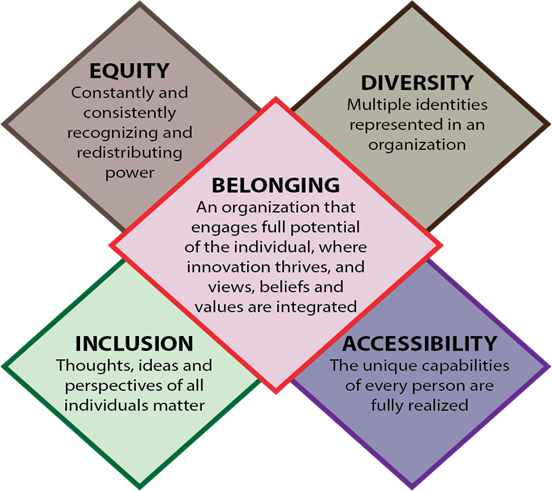- 美国2024大选民主党为什么会输? - December 26, 2024
- Is American Movie Creativity Dead? - March 17, 2023
- The Purpose of Doing Equality, Diversity, and Inclusion (EDI) Work - September 29, 2022

The Purpose of Doing Equality, Diversity, and Inclusion (EDI) Work
Language is never simply about communicating; it carries undertones and cultural underpinnings and can have a huge impact on others. Should we be sensitive about it? Yes, absolutely. If advice is offered on how to address a particular person or group, I will try to show my respect. But should we take offense so easily? I would say no. I think we can usually tell when someone is speaking offensively or trying to incite violence with words. But if it is innocuous, there is no need to take offense. Leaving room for an open discussion may be a better strategy.
Remember what Charles T. Munger said: “To the man with a hammer, the world looks like a nail. This is a dumb way of handling problems” (from Poor Charlie’s Almanack: The Wit and Wisdom of Charles T. Munger). Many of us are encouraged to take some equality, diversity, and inclusion (EDI) training at work nowadays. But some EDI training exercises—for example, the Implicit Association Test (IAT) designed by Harvard—or anything try to objectively quantify people’s biases or racism might be problematic. All of us may be biased in our own way, but do we need an objective score to tell us that? I think we need nuances and context, not a hammer, to handle people’s biases.
Remember, the end goal of doing EDI work is not to point fingers, pull people apart, or put them down, but to offer some fresh perspectives for all of us to reflect upon. The thoughts and perspectives of all individuals matter, and we should use the training to encourage people to have deeper, more meaningful conversations so that we can get to know each other better. When it comes to the words we use at work, I think most people know what is offensive and out of line. We should allow people a buffer zone when sharing their opinions instead of quickly shutting them down.
I was struck by the suicide training I recently received at work. It made me realize that sometimes, offering a few words can totally change some people’s minds when they are thinking of harming themselves. As a minority in the US workforce, I believe too much language policing can be detrimental. This is a side effect of EDI trainings that may have been ignored. I feel that sometimes people stop talking to me simply because they are so afraid of offending me. But what I want to say is that not all minority people are the same, and I don’t get offended very easily. I don’t care if you say my name wrong as long as you tried to pronounce it. I am grateful that you are not ignoring my existence.
Nelson Mandela said this: “For to be free is not merely to cast off one’s chains, but to live in a way that respects and enhances the freedom of others.” We should be sensitive without taking offense so easily. The intent of EDI work is not to create further divisions, but to include people in the conversation.

Leave a Comment
You must be logged in to post a comment.